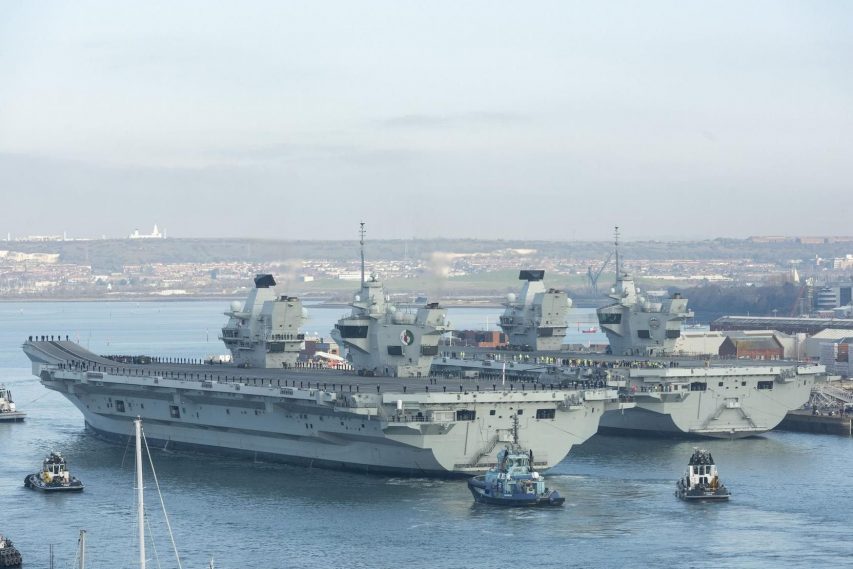In the Times last weekend, Sir Max Hastings spent some time and effort to disparage the Royal Navy for commissioning the two Queen Elizabeth-class aircraft carriers and trotting out arguments against carriers that echo the criticisms of the cancelled CVA-01 program of the 1960s. Sir Humphrey characterizes Sir Max’s article as “ranting angrily about how the UK is an irrelevance now and how we don’t actually have any military power.”
Maybe it’s a generational thing and the fact that for the few remaining, and increasingly less relevant commentators of Sir Max’s elderly generation of OAPs, perhaps memories of their childhood and a sense of national malaise in the late 1940s and 50s has shaped their perception of the world today. The problem is that their view is utterly disconnected from reality, and their approach seems to be best characterised as to answer any question as “the UK is irrelevant, whats the question again”?
It is set against this backdrop of this article that it is worth reviewing why the Carrier force remains so relevant, and why the UK, despite the wishes of Sir Max remains relevant and credible globally. Carriers matter in simple terms because they allow the UK to embark an airwing, and military force, that can sail around the world on a self-sustaining basis and arrive ready to operate at a time and place of the British Governments choosing.
[…]
We like to permanently beat ourselves up as if we’re somehow failures, yet when push comes to shove, we seem to be remarkably good at not being failures. There is always a UK capability or asset that we can help with or support. Only this week the RAF sent an A400M to conduct search and rescue operations in Chile, while at the other end of the world, it finished providing air defence to Iceland with a Typhoon detachment. When disasters occur globally, the UK is always ready to send aid and assist, while in a crisis there is usually a UK military asset nearby that can help.
This reach is in part due to the fact that the UK has invested heavily in jointery and “fusion” bringing together departments and assets to work in a far more coherent and joined up way than most nations. As a nation we enjoy considerably more influence, reach and access than we think, and are usually at the cutting edge of efforts to improve capabilities too.
It is particularly frustrating then to see attacks on the existence of the carrier force in a way that treats this priceless national asset as if it is some kind of toy for the Royal Navy. It smacks of a total lack of understanding about how defence works in support of wider national security, and how joined up things really are these days.
The carrier is a national investment designed to provide a wide plethora of capabilities to support and defend the nation, and its allies, for decades to come. To see it purely through the prism of a myopic lens and an overt and tedious hatred of the Royal Navy for reasons more probably linked to events of the 1980s than any fact is fairly sad to observe.
To be honest this piece seems to mark yet another part of the opening of hostilities in the SDSR campaign. It seems intended to cause debate about the value of carriers and gently reinforce the message that somehow money should go elsewhere – ignoring the fact that this money has now been spent.
Its hard to understand what the thinking is here, but at its heart it feels like this is a piece intended to condition the public into thinking “the Navy and to a lesser extent the RAF has had lots of money wasted on it, lets go be nice to the Army for a change”. Such a view though is utterly removed from the reality of how defence works, but it feels as if it is intended to reinforce stereotypes that wouldn’t hold up to any scrutiny.




